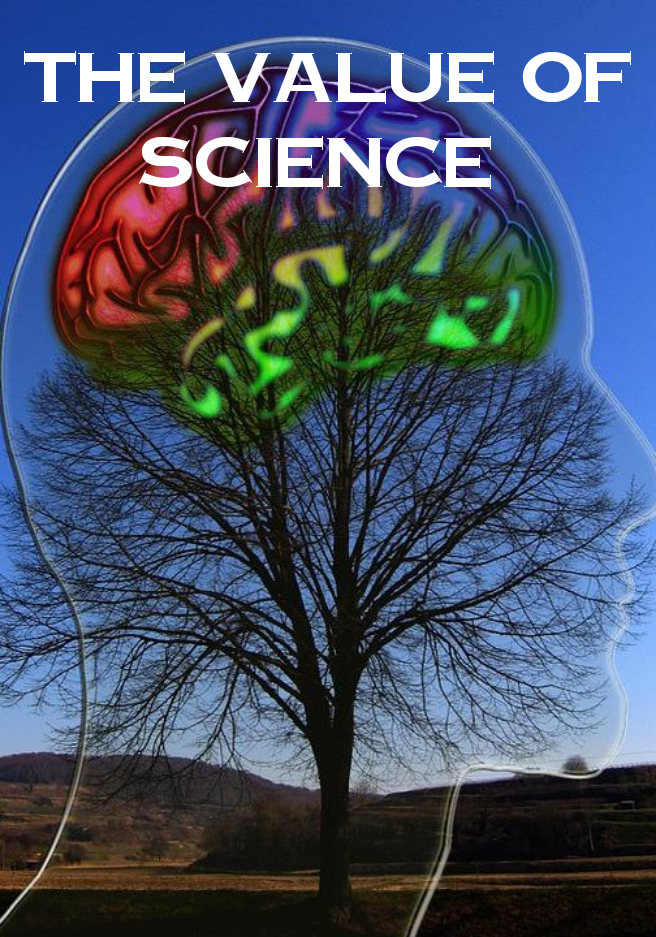The Value Of Science
The Value Of Science


Science has changed the very nature of our daily life. Our life today is set on a different plan from that which our fathers followed, and this has been due to the influence of science. Science has increased the tempo of life: it has multiplied the range of our occupations; it has added to the extent of our leisure; it has bestowed upon us comforts and amenities undreamt of by our forefathers. Today science is the servant of a privileged few who can purchase the services of those who are the masters of scientific knowledge and utilize them for their private profit and personal well-being; tomorrow science will be the willing handmaiden of humanity made free in its economic life to utilize all the benefits that science has created. Let us, however, examine what exactly science has done for us so far.
First, as regards our food, science has given us an insight into the nutritive value of the food that we take. It has demonstrated the respective merits of cooked and uncooked food. It has analyzed and classified the various constituents of our diet according to their vitamin content, caloric value, mineral basis, etc. It has explained to us the elements that make a balanced diet. We can take into account all this knowledge of food materials that science has placed at our disposal, and utilize it in re-arranging our diet. During the War, though England people were placed on a severely rationed diet, it was found that the general health of the people showed definite improvement because the Food Ministry had so arranged that the limited ration had the maximum caloric value. With the help, of all this knowledge the State can provide school children with cheap but nutritious food in order to build up the physique of future generations. This shows how much science can contribute to the improvement of national well-being.
Secondly, let us consider the next item of our necessity-our dress. Modern science has taught us the utility of light dress in a tropical country. It has demonstrated the overwhelming importance of sunlight to the tissues of the body, and the need, therefore, of seeing that the body is exposed to the rays of the sun, and benefits thereby. It has warned us against the evil effects of cramping our bodies in tight-fitting clothes. It has shown how the light garments worn in the tropics is better suited than European costume. This has been responsible for destroying a good deal of snobbery in the matter of dress that we had acquired in our eagerness to imitate the West.
Thirdly, science has shown us how we can do a greater volume of work in a shorter time and with less physical labour. It has placed at our disposal innumerable labor-saving devices, so that, in these days of shortage of servants, life can become far less difficult than it is. The typewriter, the computing machine, the telephone, the motor car, the electric fan and light, the refrigerator-all these and many others show how much work we can do with minimum labor. They save us from the mechanical drudgery of manual work and thus enable us to do much more work than our ancestors. At the same time, they create plenty of leisure which we may devote to the culture of body and mind. The modern man is thus enabled to live a full and many-sided life.
Fourthly, in our sickness, we feel more than ever the benefits of science. The physician and the surgeon are today much more sure in their diagnosis of diseases and much more confident in their ability to cure or to control them. The microscope, the X-ray, the radium, the ultraviolet rays-all these have come as real blessings and boons to humanity. With the growth of chemical and bacteriological sciences, the treatment of diseases has been very much simplified. Wonder drugs like penicillin and streptomycin have proved specific medicines in the cure of diseases that were formerly not amenable to treatment.
The services of science in providing us with cheap and innocent amusement are equally great. The radio has helped to soothe our over-wrought nerves with light music and with other means of refreshment and recreation. Equally exhilarating is the gramophone which is a happy supplement to the radio. Outside the home, we can drop in at a cinema-house and escape for a time from the worries of life. Even the theatre is something infinitely superior to what it used to be, and, with the help of scientific devices, is able to imitate more convincingly the realities of life.
Thus in our daily life science has been of the greatest help and benefit to us. It is difficult to say how much we owe to science in the affairs of our daily life. In fact, we are hardly conscious of the many amenities which science has brought; we think as little of them as we do of the gifts of Nature.




























































